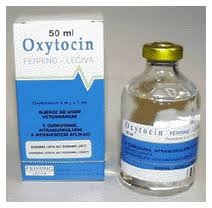![]() Hundreds of people taking Avandia, a controversial diabetes medicine, needlessly suffer heart attacks and heart failure each month, according to confidential government reports that recommend the drug be removed from the market.
Hundreds of people taking Avandia, a controversial diabetes medicine, needlessly suffer heart attacks and heart failure each month, according to confidential government reports that recommend the drug be removed from the market.
The reports, obtained by The New York Times, say that if every diabetic now taking Avandia were instead given a similar pill named Actos, about 500 heart attacks and 300 cases of heart failure would be averted every month because Avandia can hurt the heart. Avandia, intended to treat Type 2 diabetes, is known as rosiglitazone and was linked to 304 deaths during the third quarter of 2009.

 Health Glance
Health Glance With the results of a medical study summarized by a new report delivered to the California state legislature, the California Center for Medicinal Cannabis Research (CMCR) claims it has established scientific proof that inhaled cannabis holds medical value at or above the level of conventional prescription medicines used for a variety of ailments.
With the results of a medical study summarized by a new report delivered to the California state legislature, the California Center for Medicinal Cannabis Research (CMCR) claims it has established scientific proof that inhaled cannabis holds medical value at or above the level of conventional prescription medicines used for a variety of ailments. The Food and Drug Administration's warnings cover the drugs Advair, Symbicort, Foradil and Serevent. The FDA said they should be used only by asthmatics who can't control their lung disease with other medications -- and then only for the shortest time possible.
The Food and Drug Administration's warnings cover the drugs Advair, Symbicort, Foradil and Serevent. The FDA said they should be used only by asthmatics who can't control their lung disease with other medications -- and then only for the shortest time possible. A New Jersey jury has hit the pharmaceutical company that makes Accutane with a $25.16 million judgment in a lawsuit filed by an Alabama man who blamed the drug for his inflammatory bowel disorder.
A New Jersey jury has hit the pharmaceutical company that makes Accutane with a $25.16 million judgment in a lawsuit filed by an Alabama man who blamed the drug for his inflammatory bowel disorder. One in every two U.S. children now grapples at some time with a chronic health condition, such as asthma, attention-deficit hyperactivity disorder (ADHD) or obesity, new research suggests.
One in every two U.S. children now grapples at some time with a chronic health condition, such as asthma, attention-deficit hyperactivity disorder (ADHD) or obesity, new research suggests. People with high-functioning autism or Asperger's syndrome were better able to "catch" social cues after inhaling the hormone oxytocin, new research shows. Oxytocin,which is produced in abundance when a mother is breast-feeding her baby, is known as the "bonding" hormone.
People with high-functioning autism or Asperger's syndrome were better able to "catch" social cues after inhaling the hormone oxytocin, new research shows. Oxytocin,which is produced in abundance when a mother is breast-feeding her baby, is known as the "bonding" hormone. The debate on genetically modified (GM) brinjal variety continues to generate heat. Former managing director of Monsanto India, Tiruvadi Jagadisan, is the latest to join the critics of Bt brinjal, perhaps the first industry insider to do so.
The debate on genetically modified (GM) brinjal variety continues to generate heat. Former managing director of Monsanto India, Tiruvadi Jagadisan, is the latest to join the critics of Bt brinjal, perhaps the first industry insider to do so.






























